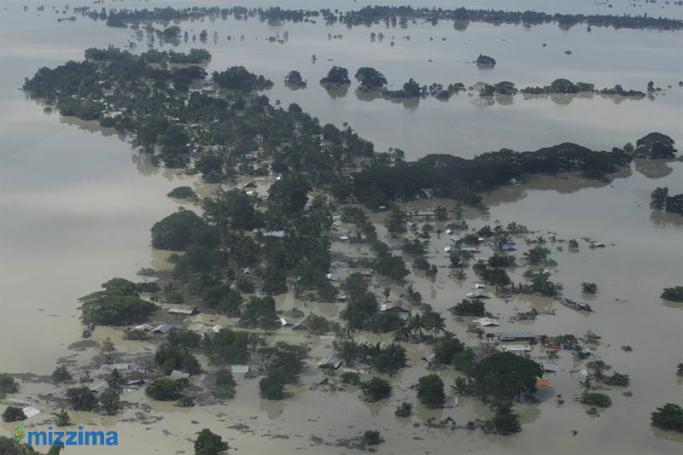From low-lying islands in the Pacific to parched areas of Africa, nations facing the most immediate peril of climate change called Monday for the world to take more drastic action to avoid catastrophe.
Gathered at the opening day of a 195-nation UN climate summit in Paris, negotiators for the most vulnerable nations pushed for the world to try to limit global warming to 1.5 degrees Celsius (2.4 degrees Fahrenheit) over pre-industrial times.
Among the questions facing the November 30-December 11 conference is whether to curb global warming to 1.5 C or, as some of the world's most powerful nations prefer, 2.0 C.
In 2010, nations negotiating under the UN flag embraced the goal of 2.0 C but agreed to consider striving for 1.5 C as a more ambitious alternative.
Both goals remain in a draft agreement that negotiators are poring over in Paris, even though the chance of reaching 1.5 C is become more and more remote.
Last week, the World Meteorological Organization (WMO) warned that "the symbolic and significant milestone" of 1 C warming would likely be passed this year.
"We refuse to be the sacrifice of the international community in Paris," Anwar Hossain Manju, environment minister from Bangladesh, said at meeting of the Climate Vulnerable Group of threatened nations, chaired by Philippine President Benigno Aquino.
"Anything that takes our survival off the table here is a red line."
Low-lying small island states, and countries with highly-populated river deltas such as Vietnam and Bangladesh, are especially vulnerable to rising seas, and many sub-Saharan African nations are already experiencing severe drought.
In a declaration approved Monday, the group called on the UN climate summit to adopt a target of a global economy fuelled entirely by renewable energy by 2050 -- the most ambitious goal put forward by any bloc of nations.
How to define the long-term shift away from fossil fuels towards a low-carbon economy is one of the central issues on the table at the talks.
Other developing nations, notable India, have said they cannot afford to give up cheap, carbon-intensive fuels such as coal as they try to lift growing populations out of poverty.
More than 100 nations at the UN talks have expressed support for at least keeping the 1.5 C target as a future option.
They got a boost Monday from German Chancellor Andrea Merkel, who expressed sympathy for their plight.
"We know -- regarding the small island states -- that it is not sufficient," she told the 150 heads of state attending the summit of the 2.0 C target.
Founded in 2009 with 20 members, the forum has recently represented another 23. Nine of them formally joined the group on Monday, and others are likely to follow.
© AFP
You are viewing the old site.
Please update your bookmark to https://eng.mizzima.com.
Mizzima Weekly Magazine Issue...
14 December 2023
New UK Burma sanctions welcome...
13 December 2023
Spring Revolution Daily News f...
13 December 2023
Spring Revolution Daily News f...
12 December 2023
Spring Revolution Daily News f...
11 December 2023
Spring Revolution Daily News f...
08 December 2023
Spring Revolution Daily News f...
07 December 2023
Diaspora journalists increasin...
07 December 2023
Myanmar objects to China erecting border fencing












